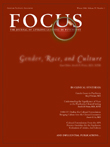A 20-Year Longitudinal Observational Study of Somatic Antidepressant Treatment Effectiveness
Abstract
Objective: This observational study examined the effectiveness of somatic antidepressant treatments as administered in the community. Method: The study group consisted of 285 subjects with an intake diagnosis of major depressive disorder who had entered the National Institute of Mental Health Collaborative Depression Study as early as 1978, had at least one additional affective episode, and had been followed for up to 20 years, as recently as 1999. The characteristics that distinguished subjects receiving various levels of somatic antidepressant treatment were accounted for in what was called a propensity for treatment intensity model. The effectiveness of somatic antidepressant treatment during major affective episodes was then examined. Results: Those who received higher levels of antidepressant treatment tended to have more prior episodes, more severe depressive symptoms, and more intensive somatic therapy during prior episodes and prior well intervals than those who received lower levels. Treatment effectiveness analyses that were stratified by propensity for treatment intensity demonstrated that those who received higher levels of antidepressant treatment were significantly more likely to recover from affective episodes. In contrast, those treated with lower levels were no more likely to recover than those who did not receive somatic treatment. Conclusions: Despite the indications of more severe depressive illness, those who received higher levels of somatic antidepressant treatment were more likely to recover from recurrent affective episodes. Results from this observational study extend the generalizability of reports from randomized clinical trials of antidepressants to a wider, more representative group of individuals who suffer from major depression.



